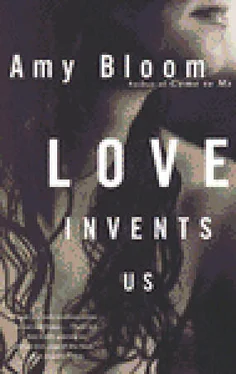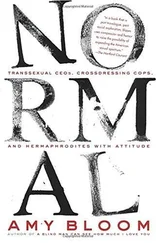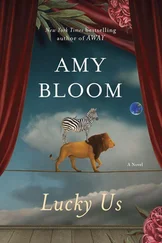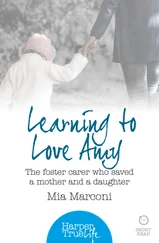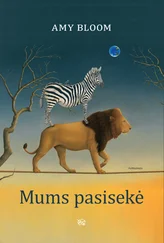“Don’t wear light colors when you have it, lovey,” she said, and left, and I pressed my face against the clean pajamas.
My mother had rules and guidelines for life, and although none of them applied to the life I’d led so far, she delivered them with great force, sometimes digging her hand into my shoulder until I nodded. Only beauty gives life meaning, she said. Good manners are more important, and more durable, than feelings. Natural fibers and a flattering cut are all that matter in clothing. Also, men do not know what they do not know, and women should not tell them. These ideas were held by my mother’s friends, too: “progressive,” apparently romantic, sixth-generation upper-class daughters of twits and earls. Everyone who knew our family knew that my mother was the daughter of a barrister and his landed-gentry wife, both tragically killed in the Blitz; in some stories they were buried in each other’s arms, in my favorite they were overcome by smoke after pulling their servants out of the burning rubble.
What everyone knew was a lie, except the English part. My mother was the illegitimate daughter of a London prostitute who had just enough feeling for her newborn baby to bundle her up in a stained sheet and deliver her, clots of blood still clinging to her little scalp, to Great-aunt Lil in Putney. My mother left school and Putney (and Aunt Lil and Cousin Harriet) at sixteen. World War Two gave her the opportunity to re-create herself. She took off for Liverpool and ran goods for black-marketeers and did other things that the poor and resourceful do in major ports.
When I read The Little Princess I saw my mother, not myself, as the forlorn, aristocratic little girl, befriended and heaped with presents by the very kind and very rich Indian Gentleman. I identified with her starving, dim-witted companion, roll crammed into her mouth, eyes darting in terror as she muttered thanks in dreadful yowling tones. If I had met the brave, lying girl Cousin Harriet knew, I think I would have liked her. I could have admired her improvised and perfected self; the pinched, pasty face turned into fashionable slenderness, terrible abandonment replayed as well-bred self-sufficiency. We both knew I was not the daughter she’d planned for, was not at all the necessary, dimpled denial of Aunt Lil’s boardinghouse, of night bicycle rides, two pints of gin strapped under her jacket, butter sweating through waxed paper in her book bag; of head lice and chopped-off hair. Cousin Harriet visited when I was eight and spent our only weekend together setting my straight hair on hot metal rollers until my scalp blistered and telling me the truth about my mother. As she unrolled one stiff, stupid ringlet after another, I saw the nuns sweeping my mother’s blonde curls across the room and into the dustbin and my mother turning her back to the class.
“No blubbing, mind you, like the other little girls, just wet eyes. And only cried a bit when we walked home.”
Margaret was brought to the States by Stan Muslic, an army captain, who married her somewhere near the family’s dairy farm in Ithaca. (Cousin Harriet was not sure about Ithaca, but was very sure about the farm part.) For all I know, she loved Captain Muslic madly, and his absurd death, skewered by his ski pole three days into their honeymoon, nearly finished her off just when she thought she was safe at last. After Cousin Harriet left, I searched my mother’s nightstand and her drawers, understanding that she had a past and had a self that came before me, but I never found a picture of Stan Muslic, nor one of Margaret Brown Muslic before she married my father.
I pressed my mother for details of Life Before Sol and found out only that she left Ithaca after a few years and studied art. This is what I made up: She sketched at night while lying on her pallet in the chicken coop and lived on the table scraps of the large and vile Muslic family. She sent away for art books with her egg money. Unable to endure their harshness, their obesity, their utter lack of manners, she fled to New York City, where she fell in love with garmentos, labor union organizers, knock-off Dior suits, and anonymity. She supported herself buying and selling antiques and reproductions and fakes. For herself in those early years, she bought only sketches from up-and-coming artists and two elegant, witty Limoges boxes, one of a hot-air balloon, one of a white-and-gilt piano with a single black note painted inside. She gave me the boxes instead of a bat mitzvah.
Margaret was twenty-six, with a nineteen-inch waist and a one-bedroom apartment in Greenwich Village, when she met my father. In my version, she looks a great deal like a blonde Vivien Leigh before she lost her marbles. The men she met must all have been married, or losers, or something worse, because she became fond of my father during his twenty-five-minute lunch breaks from Phillips, Kritzer and Kahn, the best firm a young Jewish accountant could join in 1953 (as he told me a hundred times). She let him browse among the antiques as though he belonged there, and let him look at her as though his interest was not absurd. He must have thought she was the answer to his prayers, the shield for his defects: naturally thin, naturally blonde, obviously English (meaning not Jewish), and artistic (meaning sexy) without being hysterical.
I don’t know what my mother thought. Her bravery had limits; she believed that marriage provided camouflage and safe passport, that she was at risk without it. I don’t say she was wrong. I just wish she’d stayed single a little longer, looked a little further. Sunday mornings I sat in front of the TV, watching cartoons and reading in my pink, pilly robe. I licked the corners of my mouth until they cracked and bled, pressing them dry on a tissue. My father threw The Saturday Evening Post across the room, saying I was “just like Aunt Freda, for God’s sake.” When I tired of imagining my own dead body sprawled at the bottom of the front hall stairs, I pictured him crushed to death by Great-aunt Freda and her sister Aunt Dorothy and their brother Uncle Izzy, all relatives I’d never met, left behind in the villages of Poland and the chicken farms of New Jersey.
* * *
My mother left me alone in the bathroom for about an hour. Finally, I figured out that you had to take the cardboard off before you used the tampon, and after that, my period was boring. I didn’t bleed much, and I didn’t smell too bad. I actually liked the smell of iron and salt. I didn’t keep a little calendar like some girls, so I ruined about twenty pairs of panties that year and took to carrying extras in my schoolbag, along with six tampons, Maybelline Frosted Peach lipstick, Lush Lash mascara, Midnight Pearl eyeshadow, and a Cornsilk compact. I looked in that little mirror constantly and covertly. I stroked my thighs and breasts, shaved my legs every other day. I examined every inch of my face and front, and stole my mother’s pink European gels and aqua creams, sometimes exfoliating, hydrating, and pore-minimizing all in one Saturday night. I used a loofah on all my rough spots and slept on a stolen satin pillowcase to combat premature wrinkling. I bleached the tops of my toes so that when I appeared on the Riviera, Sean Connery would not be disgusted by the sight of my darkly hairy feet. I languished seductively in the bathroom mirror, using the steam and my towel-turban to create movie star cheekbones and attitude. I would not say it to anyone (who would I say it to, even if I’d been willing?), but I thought I had potential.
In ninth grade, no one cared about what anybody’d done in elementary school. When Frannie Grant, the most popular freshman girl, was browsing with her group just one aisle away from me in Woolworth’s she smiled at me, her famous triangular smile, and I picked up a bouquet of mascaras, black and mink and teal blue, one for each of her friends, and a tray of eleven coordinated eyeshadows, the nearest expensive thing I could grab, and walked out of the store. I put it all into her cupped hands.
Читать дальше
